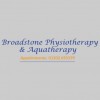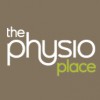
Our vision is to enable people with a neurological condition to maximise their functional potential. We do this by providing high quality specialist neurological physiotherapy in Dorset, Hampshire, Wiltshire and Somerset. All assessments and treatments are carried out at your home, so there is no travelling involved. Visits can be made to nursing and residential homes.
Elizabeth has worked in a variety of setting after studying at Teesside University and the Brunel University. She has specialised in the treatment of adults and children with neurological conditions, often in their own homes, as well as hospitals, day centres and care homes. She has a commitment to helping people gain as much recovery as possible, and will use many different techniques to get the best results.
Elizabeth set up Physio-Neuro in 2009 after seeing a need for specialist neurological physiotherapy in the Dorset, Hampshire, Wiltshire and Somerset area. To make an appointment or to discuss anything, please ring or text 07952 435258.
Elizabeth has worked in a variety of setting after studying at Teesside University and the Brunel University. She has specialised in the treatment of adults and children with neurological conditions, often in their own homes, as well as hospitals, day centres and care homes. She has a commitment to helping people gain as much recovery as possible, and will use many different techniques to get the best results.
Elizabeth set up Physio-Neuro in 2009 after seeing a need for specialist neurological physiotherapy in the Dorset, Hampshire, Wiltshire and Somerset area. To make an appointment or to discuss anything, please ring or text 07952 435258.
Services
A stroke happens when the blood supply to the brain is cut off or reduced, either by a clot, a bleed or a mass like a cyst or tumour.
This will result in the brain being damaged, meaning that movement and feeling are reduced, usually down one side of the body.
A stroke can also affect speech, swallowing, balance and the emotions.
Over time, some of the damaged areas of the brain start to get better and recovery can happen.
Treatment will be focussed on improving those parts of your body that are not working properly.
This will result in the brain being damaged, meaning that movement and feeling are reduced, usually down one side of the body.
A stroke can also affect speech, swallowing, balance and the emotions.
Over time, some of the damaged areas of the brain start to get better and recovery can happen.
Treatment will be focussed on improving those parts of your body that are not working properly.
Parkinsons Disease, or PD, happens when there is a lack of chemicals, called neurotransmitters in the brain.
These usually allow messages to pass freely from your brain to your muscle so that you can move about.
With PD, there is not enough of these neurotransmitters and messages are unable to get to the muscles causing difficulty in walking and 'freezing'.
People with PD often become less active over time and develop poor posture.
PD is a progressive condition with wide variations in the rate of change of an individual.
These usually allow messages to pass freely from your brain to your muscle so that you can move about.
With PD, there is not enough of these neurotransmitters and messages are unable to get to the muscles causing difficulty in walking and 'freezing'.
People with PD often become less active over time and develop poor posture.
PD is a progressive condition with wide variations in the rate of change of an individual.
Transverse Myelitis or TM is a rare condition where inflammation of the spinal cord causes weakness in the leg muscles.
This is usually rapid in onset, and the severity will depend on the spinal level that is affected.
The legs, and sometimes the arms and trunk, will become paralysed and lose feeling.
After a period of 1-3 months, recovery will start and feeling and power will return.
Most people will go on to make a good to fair recovery, although this can take several months.
TM is usually a single episode, but a small percentage of people will have a recurrence, or it may be an indication of another neurological condition.
This is usually rapid in onset, and the severity will depend on the spinal level that is affected.
The legs, and sometimes the arms and trunk, will become paralysed and lose feeling.
After a period of 1-3 months, recovery will start and feeling and power will return.
Most people will go on to make a good to fair recovery, although this can take several months.
TM is usually a single episode, but a small percentage of people will have a recurrence, or it may be an indication of another neurological condition.
This rare condition is caused by a progressive demylination of the peripheral nerves, followed by remyelination and recovery.
Myelin is a coating on the nerves which enables messages to be sent between the spinal cord and your muscles and skin.
Without myelin, the nerves cannot transmit messages which results in paralysis.
Guillaine Barre Syndrome or GBS usually starts in the hands or feet, and works up the legs and arms.
In severe cases it can affect the respiratory muscles and the person would be on a ventilator.
Myelin is a coating on the nerves which enables messages to be sent between the spinal cord and your muscles and skin.
Without myelin, the nerves cannot transmit messages which results in paralysis.
Guillaine Barre Syndrome or GBS usually starts in the hands or feet, and works up the legs and arms.
In severe cases it can affect the respiratory muscles and the person would be on a ventilator.
Physio-Neuro specialises in treating people with a neurological condition, which is a specialised branch of physiotherapy.
Your local physiotherapy practice is likely to be a specialist in the treatment and management of sports injuries, muscle sprains, neck and back pain.
A Chartered Physiotherapist has completed an approved course of study and is regulated by the Chartered Society of Physiotherapists (CSP).
They are highly trained and accountable for their actions.
They are entitled to put the initials MCSP after their name.
Your local physiotherapy practice is likely to be a specialist in the treatment and management of sports injuries, muscle sprains, neck and back pain.
A Chartered Physiotherapist has completed an approved course of study and is regulated by the Chartered Society of Physiotherapists (CSP).
They are highly trained and accountable for their actions.
They are entitled to put the initials MCSP after their name.
Reviews

Be the first to review Physio-neuro.
Write a Review

